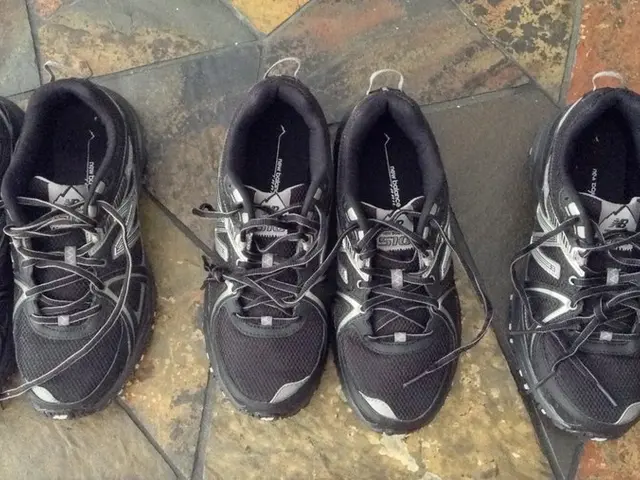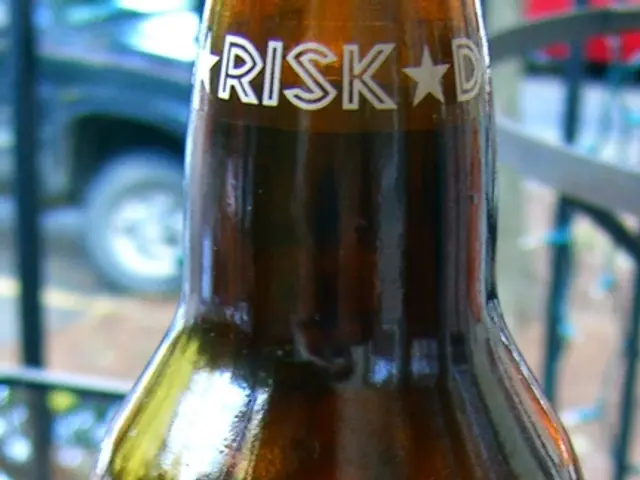Unraveling Bipolar Condition: Manifestations, Duration, and Control Strategies
Bipolar Disorder: Understanding and Managing the Complex Mood Disorder
Bipolar disorder is a prevalent mental health condition significantly impacting millions of individuals worldwide. Characterized by extreme and unpredictable mood swings, it often disrupts daily life, relationships, and overall well-being. This chronic mood disorder demands understanding of its various types, symptoms, and management strategies to effectively cater to those affected.
Diverse forms of Bipolar Disorder
Bipolar disorder is not one-dimensional. The condition presents in various forms, each with unique characteristics. Recognizing these differences is essential for accurate diagnosis and targeted treatment.
- Bipolar I Disorder: The most severe form, marked by at least one manic episode lasting seven days (or severe enough to necessitate hospitalization) and potentially occasional depressive episodes. Manic episodes feature persistently elevated or irritable mood, increased energy levels, and possible psychotic symptoms.
- Bipolar II Disorder: Identified by a pattern of depressive episodes and hypomanic episodes (less severe manic episodes that do not require hospitalization). Although the depressive episodes can be equally debilitating as those in Bipolar I, hypomanic periods are less intense and do not significantly impair daily functioning.
- Cyclothymic Disorder: A milder, chronic form characterized by numerous periods of hypomanic and depressive symptoms that do not meet the full criteria for hypomania or depression. These symptoms persist for at least two years (one year in children and adolescents), although intervals of normal mood last shorter than eight weeks.
- Other Specified and Unspecified Bipolar and Related Disorders: These categories encompass cases where bipolar-like symptoms do not strictly adhere to the criteria for the other types, such as shorter durations or unique symptom presentations.
Recognizing and Understanding Symptoms
Identifying bipolar disorder symptoms is vital for swift diagnosis and treatment. Symptoms can vary depending on whether a person is experiencing a manic, hypomanic, or depressive episode.
- Manic Episode Symptoms: elevated or euphoric mood, increased energy, decreased sleep requirement, racing thoughts, impulsivity, risky behavior, and inflated self-esteem.
- Hypomanic Episode Symptoms: similar to manic symptoms but less severe, leading to increased productivity and creativity.
- Depressive Episode Symptoms: persistent sadness or emptiness, loss of interest in activities, changes in appetite and sleep patterns, fatigue, difficulty concentrating, feelings of worthlessness or guilt, and thoughts of death or suicide.
- Mixed Episode Symptoms: simultaneous occurrence of manic and depressive symptoms, rapid mood swings, and irritability.
- Rapid Cycling: A pattern where four or more episodes of mania, hypomania, or depression occur within a year, posing challenges in management and demanding specialized treatment approaches.
It's crucial to note that adolescents may exhibit different symptoms from adults, often mimicking typical adolescent mood episodes or other mental health conditions.
Averaging the Depressive Episode Duration
Understanding the typical duration of bipolar depression is essential for both patients and healthcare providers. The length of depressive episodes varies significantly among individuals and may change over time.
- On Average: Bipolar depressive episodes last approximately three to six months if left untreated, with some episodes lasting only a few weeks and others persisting for a year or more.
- Factors Influencing Duration: severity of the episode, co-occurring mental health conditions, substance use, stress levels, treatment adherence, effectiveness, individual biological factors, and the intervention timing.
Distinguishing Bipolar Depression from Unipolar Depression
Bipolar and unipolar depression differ in their patterns. While unipolar depression episodes may last longer on average, bipolar depression is characterized by frequent episodes and shifts between depression and mania or hypomania. Comprehension of these differences is crucial for accurate diagnosis and treatment.
Imbuing the Diagnosis and Treatment
Accurate diagnosis and comprehensive treatment are vital for effectively managing bipolar disorder.
- Diagnostic Criteria and Process: Mental health professionals use the DSM-5 criteria for diagnosis, typically involving clinical interviews, mood charting, psychological assessments, and medical tests to rule out other conditions.
- Medication Options: Essential medications include mood stabilizers, antipsychotics, antidepressants (used cautiously due to the risk of triggering mania), and anti-anxiety medications. Consulting a psychiatrist or mental health professional is advisable for prescribed bipolar meds.
- Psychotherapy Approaches: Beneficial psychological methods include cognitive-behavioral therapy, interpersonal and social rhythm therapy, family-focused therapy, and psychoeducation.
- Lifestyle Changes and Self-Management Strategies: Sleep scheduling, exercise, stress-reduction techniques, substance abstinence, and maintaining a mood diary can significantly impact the management of bipolar disorder.
Navigating Life with Bipolar Disorder
Although bipolar disorder is a chronic condition, many people achieve stability and lead fulfilling lives through coping strategies, building a support network, and maintaining treatment consistency.
- Coping Strategies: routine adherence, trigger identification and avoidance, relaxation techniques, creative outlets, mindfulness, and meditation.
- Support Network: family, friends, support groups, mental health professionals, and online communities play crucial roles in providing emotional support and encouragement.
- Stability and Relapse Prevention: consistent treatment and self-care, including medication adherence, therapy attendance, mood monitoring, and a healthy lifestyle, are key to preventing relapses.
- Stigma Reduction: Education, open communication, and challenging stereotypes can alleviate the stigma surrounding bipolar disorder.
The challenge of bipolar mood swings is an ongoing process requiring patience, persistence, and support. With proper treatment, self-management strategies, and acceptance, many people with bipolar disorder achieve stability and improved quality of life.
Although bipolar disorder can impact individuals of all ages, considerations and unique challenges may arise when dealing with childhood bipolar disorder. Understanding the complexities of the condition in a pediatric context is essential for effective support and treatment.
In some instances, bipolar disorder may manifest with psychotic features, necessitating specialized attention and treatment. Awareness and understanding of these features are essential for adequate diagnosis and management.
In conclusion, bipolar disorder warrants careful analysis, accurate diagnosis, and adaptable treatment approaches. Recognizing symptoms, understanding episode duration, and implementing effective management strategies contribute to improved outcomes and enhancing the quality of life for those affected by this multifaceted condition. Seeking professional help is an essential step in overcoming the challenges of bipolar disorder. With ongoing research and advancements in treatment options, there is hope for a brighter future for those living with bipolar disorder.
References
- American Psychiatric Association. (2013). Diagnostic and statistical manual of mental disorders (5th ed.).
- Goodwin, F. K., & Jamison, K. R. (2007). Manic-depressive illness: Bipolar disorders and recurrent depression (2nd ed.).
- National Institute of Mental Health. (2020). Bipolar Disorder.
- Geddes, J. R., & Miklowitz, D. J. (2013). Treatment of bipolar disorder. The Lancet.
- Vieta, E., Berk, M., Schulze, T. G., Carvalho, A. F., Suppes, T., Calabrese, J. R., ... & Grande, I. (2018). Bipolar disorders. Nature Reviews Disease Primers.
- Kupka, R. W., Altshuler, L. L., Nolen, W. A., Suppes, T., Luckenbaugh, D. A., Leverich, G. S., ... & Post, R. M. (2007). Three times more days depressed than manic or hypomanic in both bipolar I and bipolar II disorder. Bipolar Disorders.
- Baldessarini, R. J., Tondo, L., & Vázquez, G. H. (2019). Pharmacological treatment of adult bipolar disorder. Molecular Psychiatry.
- Miklowitz, D. J., & Gitlin, M. J. (2015). Clinician's guide to bipolar disorder. Guilford Publications.
- Mental health is an essential aspect of self-care, and understanding conditions such as bipolar disorder can empower individuals to seek help and bring awareness to its complications.
- Science and psychology continue to unlock the complexities of bipolar disorder, providing more targeted treatment and support for those affected by the disorder.
- Bipolar disorder can exacerbate other medical-conditions like cancer, heart disease, or neurological disorders, highlighting the need for comprehensive care for patients.
- Adequate sleep is crucial for managing the stress that can trigger bipolar episodes, so it is essential to prioritize healthy sleep habits and consult a healthcare provider if sleep problems persist.
- Eye-health, skin-care, and nutrition are often overlooked aspects of health and wellness, but their contributions to overall mental well-being should not be underestimated.
- Fitness and exercise play significant roles in reducing stress, promoting a positive outlook, and stabilizing mood for those with bipolar disorder.
- Mental health is not solely a matter of the mind, but also factors such as parenting, relationships, and environmental influences can all impact one's mental state.
- Mens' health is often neglected, and men with bipolar disorder may face unique barriers to seeking help, making it crucial to break down stigmas and encourage open dialogue about mental health.
- Womens' health encompasses various aspects specific to women, such as hormonal changes, menstrual cycles, and pregnancy, which may influence their experiences with bipolar disorder.
- Skin-conditions like eczema and psoriasis can affect one's self-esteem and mental health, underlining the importance of proper skin-care and potential psychological intervention.
- Comprehensive understanding of bipolar disorder and its management strategies benefits not only the individuals affected but also their families, friends, and communities, ultimately creating a more inclusive and supportive society.








